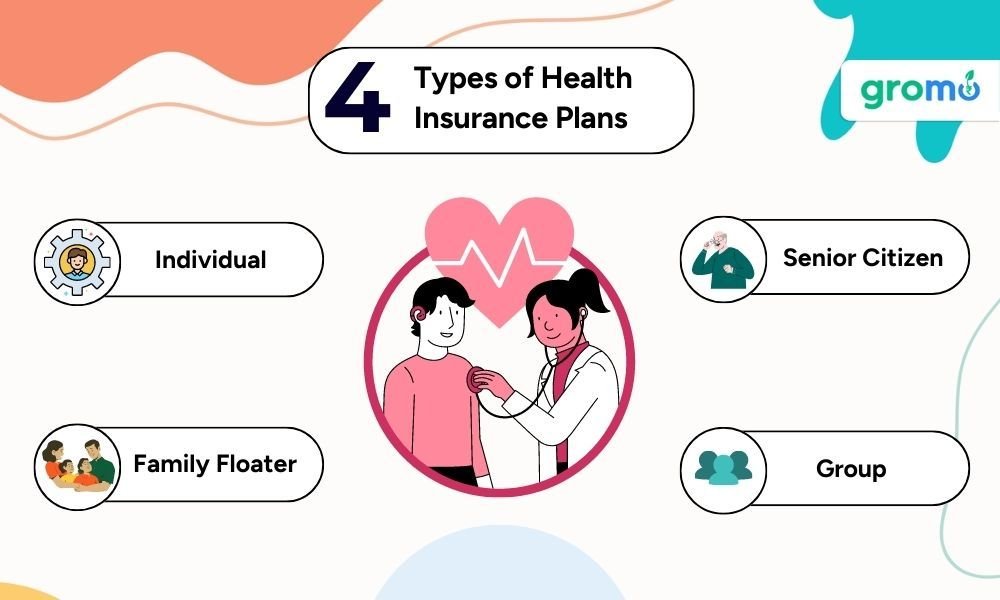Introduction to Personal Insurance
In today’s unpredictable world, securing your financial future with personal insurance is more crucial than ever. Personal insurance serves as a safety net, protecting you from unforeseen events that could otherwise devastate your financial stability. Whether it’s a sudden illness, an unexpected accident, or damage to your property, personal insurance ensures you and your loved ones are covered.
Types of Personal Insurance
Understanding the different types of personal insurance available is the first step towards making informed decisions.
Health Insurance
What is Health Insurance?
Health insurance covers the cost of medical expenses incurred due to illnesses or injuries. It can include a range of services from hospital stays and surgeries to regular check-ups and preventive care.
Benefits of Health Insurance
Having health insurance means you won’t have to worry about the high costs of medical care. It ensures access to necessary treatments and helps you stay healthy by providing preventive services at no additional cost.
Life Insurance
What is Life Insurance?
Life insurance provides financial protection to your beneficiaries in the event of your death. It’s a way to ensure that your loved ones are financially secure when you’re no longer around to support them.
Different Types of Life Insurance
There are mainly two types of life insurance: term life insurance and whole life insurance. Term life insurance covers you for a specific period, while whole life insurance provides lifelong coverage and includes an investment component.
Auto Insurance
What is Auto Insurance?
Auto insurance protects you financially in case of vehicle-related damages or injuries. It can cover everything from minor fender-benders to major collisions, as well as theft or damage to your car.
Coverage Options in Auto Insurance
Typical coverage options include liability, collision, comprehensive, personal injury protection, and uninsured/underinsured motorist coverage. Each serves a different purpose, so it’s essential to choose the right combination for your needs.
Homeowners Insurance
What is Homeowners Insurance?
Homeowners insurance safeguards your home and belongings against risks such as theft, fire, and natural disasters. It also provides liability coverage if someone is injured on your property.
Key Coverage Areas in Homeowners Insurance
This insurance typically covers your home’s structure, personal property, additional living expenses if you’re temporarily displaced, and personal liability.
Disability Insurance
What is Disability Insurance?
Disability insurance provides income replacement if you’re unable to work due to an injury or illness. It’s essential for maintaining your financial independence if you can’t earn a living.
Why Disability Insurance is Essential
Without disability insurance, you might struggle to cover your living expenses if you become disabled. This insurance ensures you continue to receive a portion of your income, reducing financial stress during difficult times.
Choosing the Right Personal Insurance
Selecting the right insurance policy involves several steps:
Assessing Your Needs
Consider your life stage, dependents, health status, and financial obligations. These factors help determine the type and amount of coverage you need.
Comparing Different Policies
Look at various policies, comparing coverage options, premiums, and benefits. This comparison will help you find the best value for your money.
Understanding Policy Terms and Conditions
Read the fine print carefully. Understand what is covered, exclusions, waiting periods, and how claims are handled. This knowledge prevents unpleasant surprises later.
Factors Affecting Personal Insurance Premiums
Several factors influence the cost of your personal insurance premiums:
Age and Health Status
Younger, healthier individuals typically pay lower premiums. As you age or if you have health issues, premiums tend to increase.
Lifestyle and Occupation
High-risk occupations or risky lifestyle choices, like smoking, can lead to higher premiums.
Coverage Amount and Policy Term
The more coverage you seek and the longer the policy term, the higher your premiums will be.
Tips for Saving on Personal Insurance
Here are some strategies to lower your insurance costs:
Bundling Insurance Policies
Many insurers offer discounts if you purchase multiple policies, such as auto and home insurance, from them.
Maintaining a Healthy Lifestyle
A healthy lifestyle can lower your health and life insurance premiums. Regular exercise, a balanced diet, and avoiding risky behaviors contribute to better rates.
Raising Deductibles
Higher deductibles mean lower premiums. However, ensure you can afford the deductible amount in case of a claim.
Common Myths About Personal Insurance
Let’s debunk some common misconceptions:
“I Don’t Need Insurance Because I’m Healthy”
Even the healthiest individuals can face unexpected medical emergencies. Health insurance is crucial for covering such unforeseen events.
“Life Insurance is Only for the Elderly”
Life insurance is vital for anyone with dependents or financial obligations. It provides security regardless of age.
“Auto Insurance Only Covers Accidents”
Auto insurance also covers theft, natural disasters, and other non-accident-related damages, depending on your policy.
The Claims Process
Understanding the claims process can make it smoother:
How to File a Claim
Notify your insurer as soon as possible. Provide all necessary documentation and follow their specific procedures.
What to Expect During the Claims Process
Expect to communicate with your insurer frequently. They will investigate the claim and determine the payout based on your policy.
Tips for a Smooth Claims Experience
Keep detailed records, provide accurate information, and stay patient. Clear communication with your insurer is key.
The Role of an Insurance Agent
Insurance agents can be invaluable:
How Insurance Agents Can Help
Agents offer personalized advice, help you understand your options, and assist with the application and claims process.
Choosing a Trustworthy Insurance Agent
Look for agents with good reputations, proper licensing, and those who put your needs first.
Online vs. Offline Insurance Purchase
Consider the pros and cons:
Pros and Cons of Buying Insurance Online
Online purchases are convenient and often cheaper, but they lack personalized service.
Benefits of Buying Insurance Through an Agent
Agents provide tailored advice and support, but their services might come with higher costs.
Understanding Insurance Jargon
Familiarize yourself with key terms:
Key Terms You Should Know
Terms like premiums, deductibles, exclusions, and riders are crucial to understanding your policy.
Deciphering Policy Documents
Read policy documents thoroughly. If unclear, seek clarification from your insurer or agent.
The Future of Personal Insurance
Stay informed about emerging trends:
Emerging Trends in Personal Insurance
Expect to see more personalized policies, usage-based insurance, and increased use of technology.
The Impact of Technology on Insurance
Technology is making insurance more accessible, with innovations like mobile apps and AI-driven customer service.
Conclusion
Personal insurance is an essential component of financial planning. It provides peace of mind and security, knowing that you and your loved ones are protected against life’s uncertainties. By understanding your options, assessing your needs, and making informed decisions, you can ensure that you have the right coverage in place.
FAQs About Personal Insurance
What is the Difference Between Term and Whole Life Insurance?
Term life insurance provides coverage for a specific period, while whole life insurance offers lifelong coverage and includes a savings component.
*Can I Have Multiple Health Insurance Policies
4o

